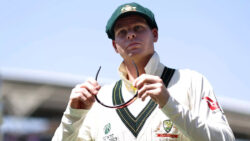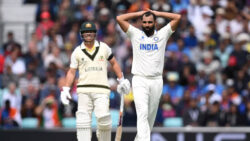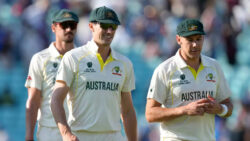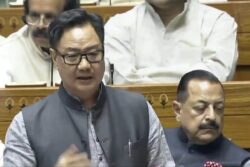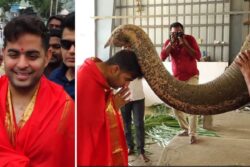Research on Decision Review not shown to ICC
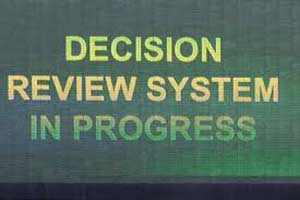
Dubai: Independent research that may have swayed the ICC’s executive board into approving mandatory use of the DRS was not shown at its meeting in Kuala Lumpur, despite being pivotal in convincing both the cricket committee and the chief executives’ committee of the technology’s accuracy.
 Wally Edwards, the Cricket Australia chairman, has revealed that the research on ball-tracking conducted by Dr Ed Rosten, an expert in computer vision technology, was left off the agenda of the executive board meeting, which concluded without the issue of DRS even being put to a vote due to India’s reluctance to accept its use.
Wally Edwards, the Cricket Australia chairman, has revealed that the research on ball-tracking conducted by Dr Ed Rosten, an expert in computer vision technology, was left off the agenda of the executive board meeting, which concluded without the issue of DRS even being put to a vote due to India’s reluctance to accept its use.
The ICC will now send a mission to India to show Dr Rosten’s research to the BCCI, alongside details of the enhancements made to Hot Spot, the infrared cameras used to detect edges that had their accuracy questioned after the 2011 Test series between England and India.
Edwards told ESPNcricinfo that while other members of the board had also expressed some reluctance to go ahead with mandatory use of the DRS, he believed the tabling of Dr Rosten’s research may have resulted in a different outcome.
“ICC had got some independent research done on the accuracy and all those issues. Now unfortunately they didn’t present that information to the board,” Edwards said. “India have agreed and the boards have agreed for ICC management to go to India and take all the information, take their presentations, take their technical support and talk to them over there.
“India are willing to look at it, but they’re sceptical, and others are too – it’s not just India. I think it is part of the game for the future, but it’s a good time to review. Unfortunately if that presentation, or whatever it is they had, had been presented to the board it might have changed things. But we probably need another process, because people would have to go back to their boards and say ‘this is the latest, can we move from where we are to there’. Obviously Australia supports it, and we understand there’s still an error factor, but overall it’s better than what we had.”
The accuracy of the DRS had been warmly endorsed by both the ICC’s cricket committee and chief executives committee, with Dr Rosten’s research a critical part of winning their approval. Following the CEC meeting, an ICC statement read: “CEC recommended to the Board the universal application of the DRS after being satisfied with the technology enhancements provided by new Hotspot cameras and the results of the independent research on ball tracking conducted by Dr Ed Rosten, an expert in computer vision technology. Dr Rosten had tested the accuracy and reliability of ball tracking in a recent Test series and concluded that the results were 100% in agreement with the outcomes produced from his assessments.”
Much has been made of the back-room politics of the executive board, which appears to be far more consequential to the running of the global game than anything said in formal meetings. Edwards, however, said he did not find it unusual that the DRS was not tabled for a vote, based on his previous experience on various corporate and cricket boards in Australia. Instead, he awaited India’s response to the research they will be presented with.
“Obviously if there are debatable issues we try to debate them. The more difficult the issue, the more you should talk,” Edwards said. “But in any boards that I’ve been on, there are very few decisions that will actually go to a ‘we’re going to count the votes here’ situation. Governance is one of them, but most others you’ll find a consensus that says ‘yeah right we’ll give that a run’. I didn’t find it unusual.
“We knew where India stand on it, and at this point in time they’re not ready to change their thoughts. Those lines you see on TV, are they accurate, that’s the scepticism. It looks accurate, but from their point of view they are reluctant just to accept it as gospel. I think it is possible they’ll change, but we’ll have to wait and see how they go with this new information in India.”
Previous attempts have been made to demonstrate the intricacies and accuracy of ball-tracking and other technology to the BCCI, notably via a planned trip to Australia during the 2010-11 Ashes series. On that occasion the visit was at first approved by the BCCI but then ruled out due to “scheduling difficulties”.

